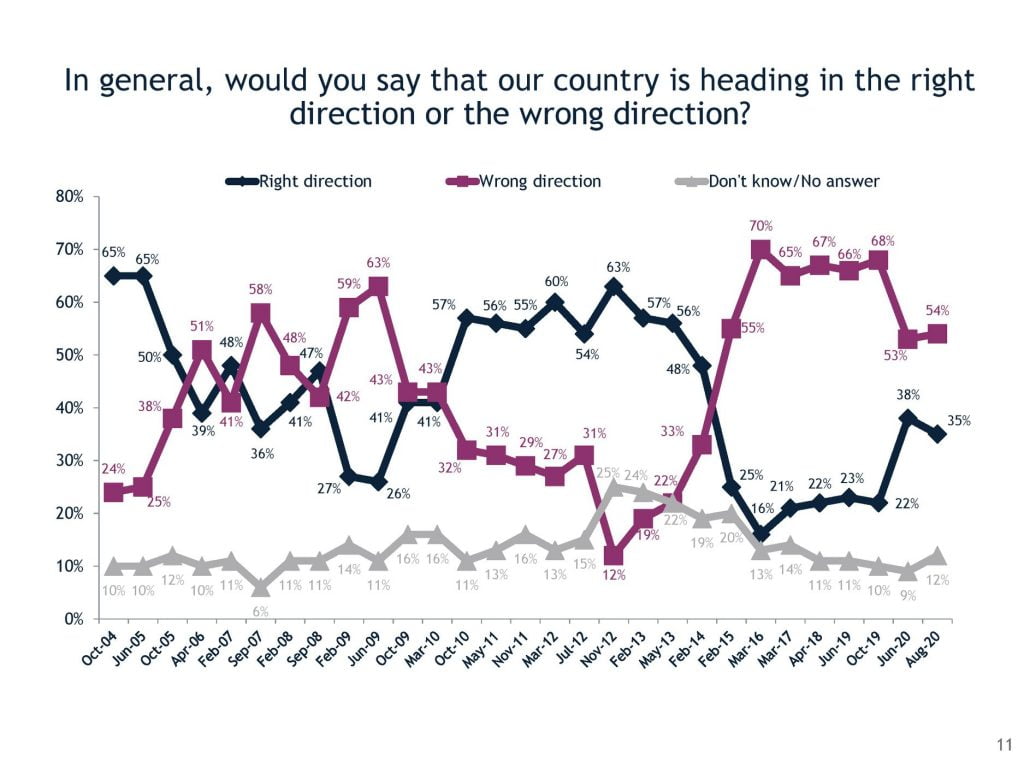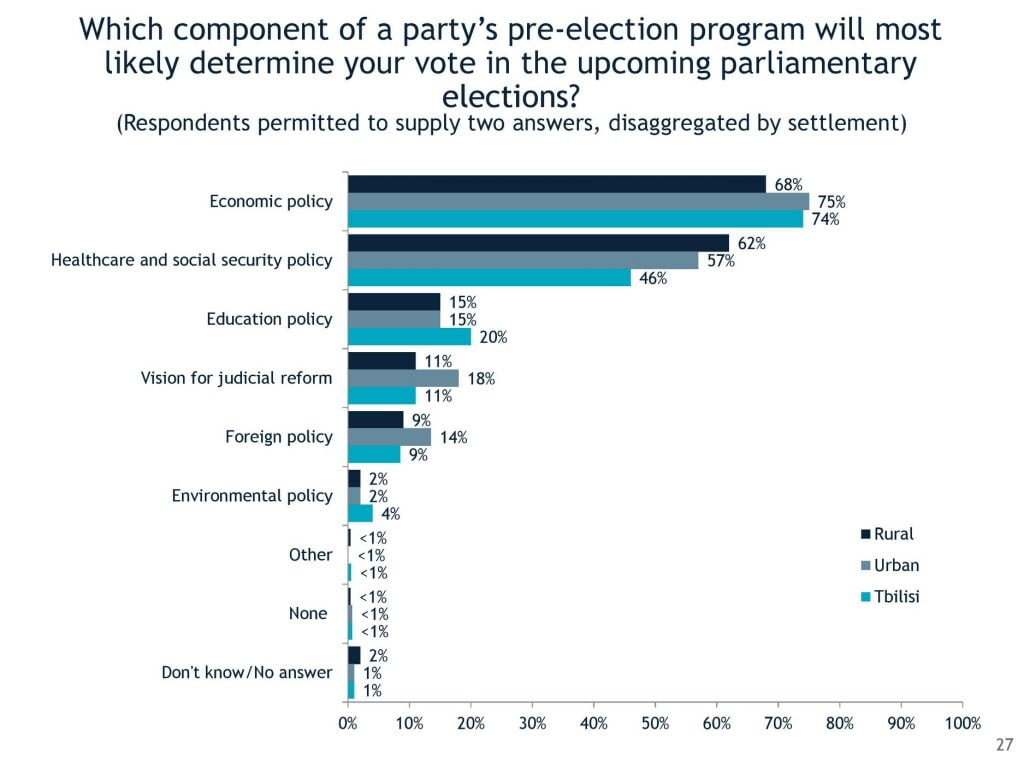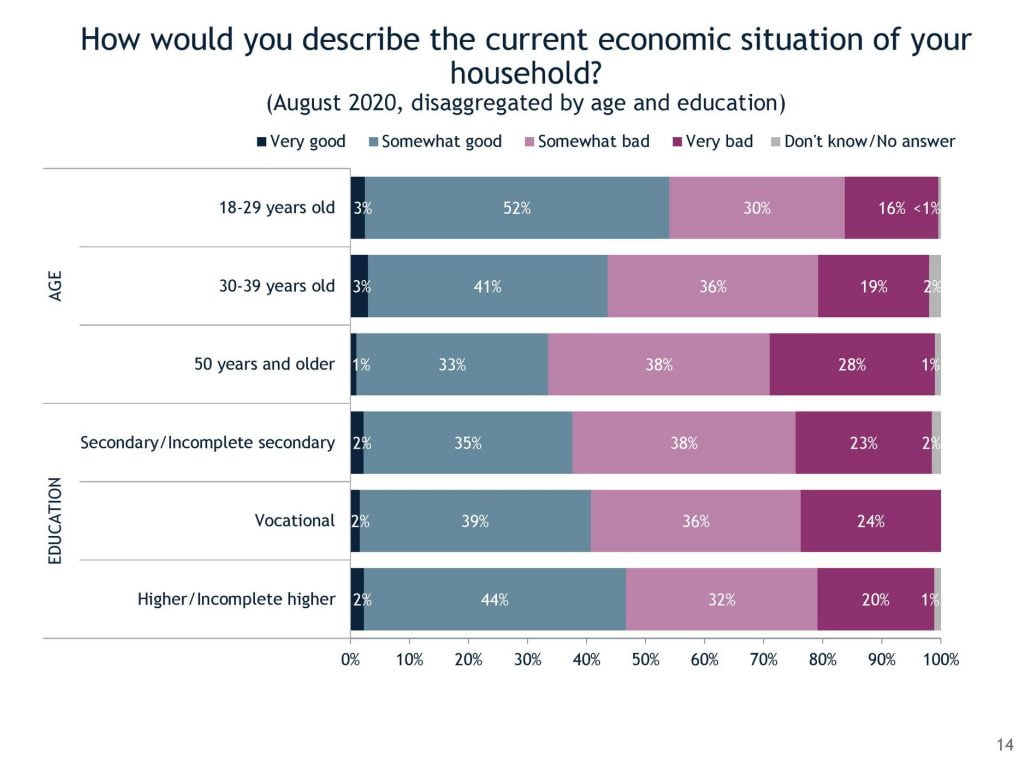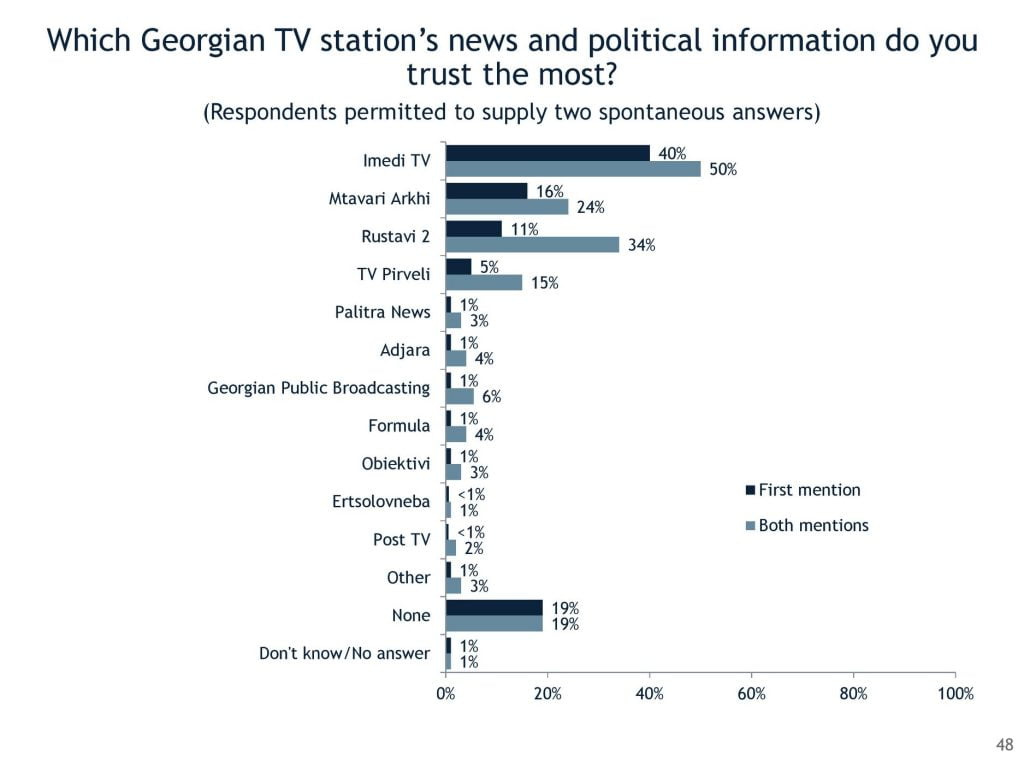
Political Ratings, COVID, Economic Concerns in IRI Poll
A recent poll released by International Republican Institute (IRI) reveals that if parliamentary elections were held this coming Sunday, 36% would vote for the ruling Georgian Dream party, 15% for United National Movement – Strength in Unity, 4% – European Georgia, Strategy Aghmashenebeli and Alliance of Patriots – 4% for each, Labor Party – 3%, 2% would vote for Aleko Elisashvili’s Civic Movement/Citizens, Lelo for Georgia and 2% Girchi, per each. 3% said none, while 23% said do not know/gave no answer.
Reckoning country’s direction, 54% said Georgia is going in the wrong direction (down from 68% in October) and 35% said it goes in the right direction, up from 22% in October. Younger generations (aged 19-29) are slightly more prone to name right direction (39% – right direction, 50% says wrong direction), as opposed to those above 50 (33% – right direction, 56% – wrong direction).

As for satisfaction with the state of democracy in the country, 11% are very satisfied (9% in October 2019), 40% are somewhat satisfied (33% in Oct 2019), 25% are somewhat unsatisfied (27% in October 2019), 19% are very unsatisfied (24% in Oct’19). Respondents above 50 are less satisfied with the level of democracy in the country compared to the younger generations.
October Elections, Political Parties
The poll reveals that 74% of respondents are very likely to vote in the upcoming October general elections, while 16% are somewhat likely to cast their ballots.
72% of respondents said the party’s economic policy would most likely determine their vote in the upcoming polls, while 56% said healthcare and security policy, 17% said education policy, while the vision for judicial reform was named by 13%. Foreign policy was named by 10% (respondents could name two answers to the question).
33% of respondents said personalities of candidates in a specific political party will be the most important factor in determining their vote, followed by past performance/track record – with 23% and candidate party affiliation – 15%. Platform/program/promises were named by 14%.

Responding to the question of whether they are familiar with the election programs of the parties and candidates running in their cities/districts/villages, 7% of respondents said they are very familiar, 35% are somewhat familiar, 25% said somewhat unfamiliar, while 26% are very unfamiliar.
44% of respondents said the parliamentary majority should appoint the next Prime Minister, 36% said the parliamentary multiparty coalition should do so, 20% don’t know.
Reckoning increased proportional representation in the 150-member Parliament (from 77 to 120), 17% said the change will very positively affect the democratic development of the country, 38% said somewhat positively, 12% responded somewhat negatively, 6% said very negatively. 27% provided no answer/don’t know.
COVID-19 and Government Response
37% said they are very satisfied with the government’s response to COVID-19, 45% said somewhat satisfied, 11% and 6% are somewhat unsatisfied and very unsatisfied, respectively.
As for the government’s response to the economic consequences of COVID, 15% are very satisfied, 40% are somewhat satisfied, 24% are somewhat unsatisfied and 19% are very unsatisfied. The poll shows that rural residents tend to be more satisfied with the government’s efforts to address the economic consequences of the pandemic, as opposed to Tbilisites.

22% of respondents think the fight against COVID is the main achievement of the Georgian Dream government, followed by healthcare reform – 12%, infrastructure – 4%, and stability – 4%. 26% said the GD gov’t has no achievements, while 17% do not know/give no answer. Unemployment, economic situation and false promises were named as the biggest failures of the incumbent government, with 10%, 9%, and 9% respectively, followed by an increase in crime, named by 6%. 9% said the GD gov’t has no failures, while 25% gave no answer.
Speaking of their households’ situation, 2% of respondents described it as very good, 39% said – somewhat good, 36% said somewhat bad, while 22% assessed it as very bad.
Speaking of the current pandemic impact on their households’ economic situation, 32% said it stayed the same, 39% responded that it worsened somewhat, while for 25% it worsened a lot. Less than 1% said it improved a lot, while 3% said it improved somewhat.
Unemployment, Economic Issues Loom Large
Speaking of local town/village problems, 25% named unemployment, 12% said drinking water, 7% said the economy, while 5% said roads and ecology, each.
In regards to most important household problems, 31% said unemployment, 15% said the economy, 8% said poverty, 6% said low salaries.

Sources of Information
40% named pro-ruling party Imedi TV as the most trusted TV station, 16% said pro-opposition Mtavari Arkhi, 11% said Rustavi 2, 5% said pro-opposition TV Pirveli. 19% of respondents said none.
38% said they use social media to get information on political parties or candidates, as opposed to 61% that does not. 58% of youngsters aged 18-29 use social media for this purpose, as opposed to 21% of those above 50.

This post is also available in: ქართული Русский